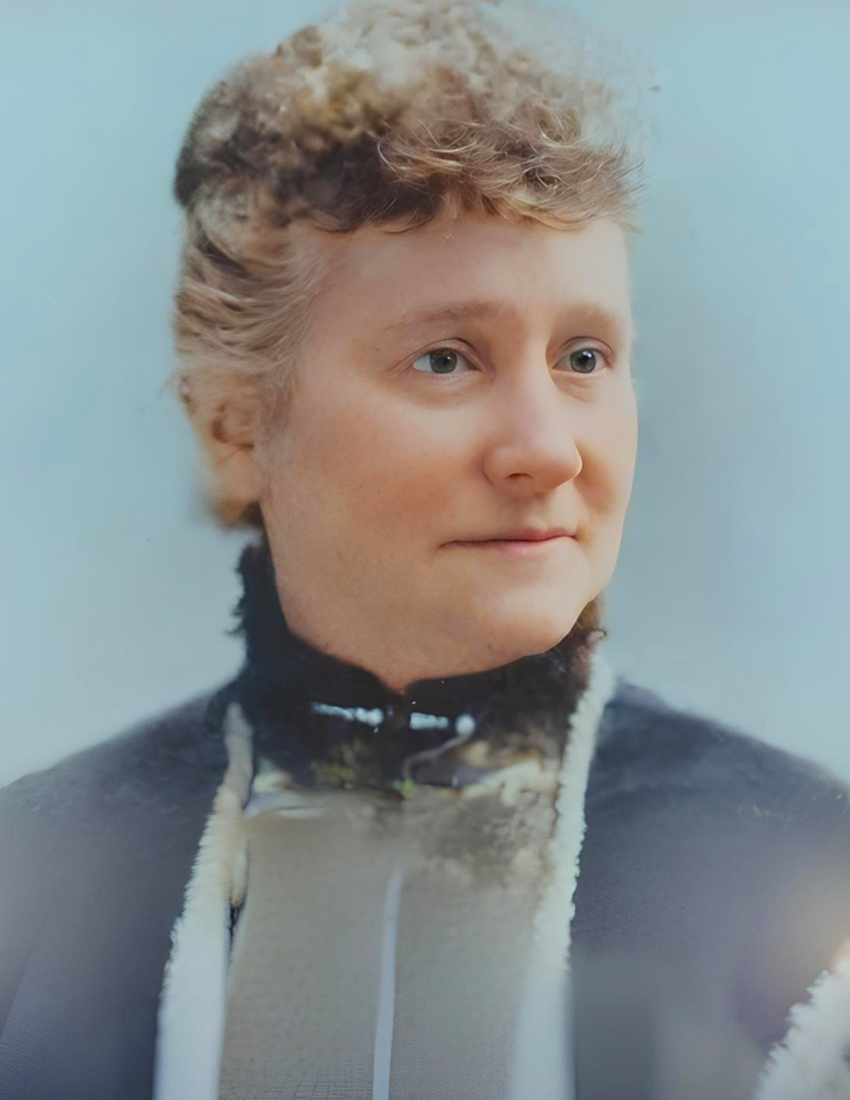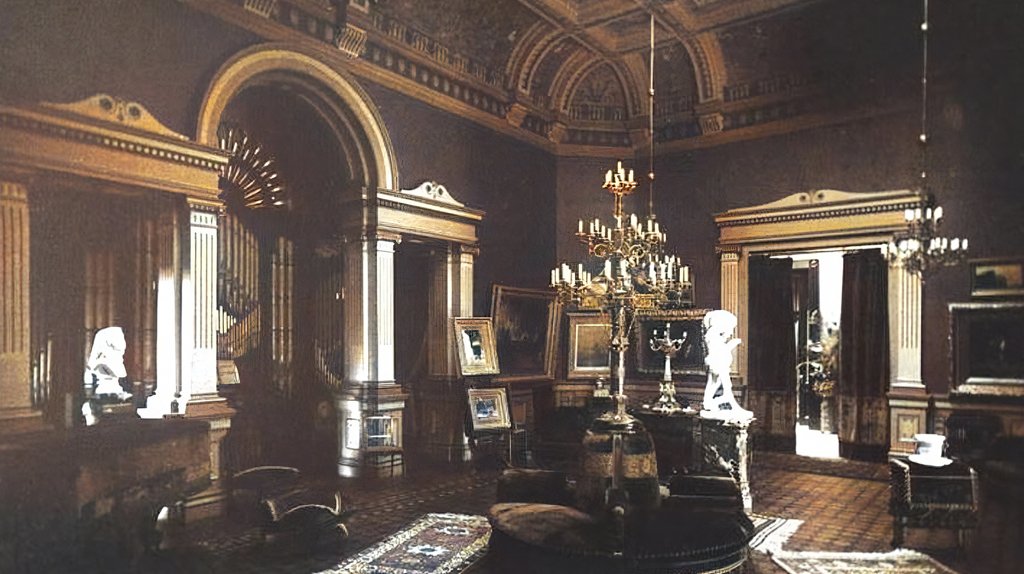Born: March 9, 1839, New York City.
Died: July 10, 1908, Poland Springs, ME.
Buried: Green-Wood Cemetery, Brooklyn, NY.
Phoebe Palmer Knapp

Hymns by Phoebe Knapp
Phoebe Palmer Knapp: A Life of Music, Faith, and Generosity
Born in 1839, the remarkable Phoebe Palmer Knapp left an indelible mark on sacred music through her compositions, collaborations, and unwavering faith. Her most famous contribution, the classic hymn “Blessed Assurance,” continues to inspire and uplift congregations around the globe.
Early Life and Musical Beginnings
From a young age, Phoebe displayed an innate musical talent. As a young girl, she composed and sang children’s songs, showcasing a natural affinity for melody and verse. Born into a family of devout Methodists, Phoebe often collaborated with her mother, Phoebe Worrall Palmer, who wrote hymn verses while young Phoebe composed the accompanying melodies on the piano or organ.
Marriage and Wealth
Phoebe’s life took a significant turn when she married Joseph Fairchild Knapp, a successful businessman who co-founded the Metropolitan Life Insurance Company. Their union brought great wealth, enabling the couple to live a lavish lifestyle. The Knapps resided in a grand mansion in Brooklyn, New York, which was virtually a palace. After her husband’s death, Phoebe continued to live a life of social and musical activity. She moved from the Knapp Mansion on Bedford Avenue into the Savoy Hotel, where she took an entire suite of rooms and even moved her large pipe organ there. This allowed her to maintain her active social life and continue her musical compositions until her death in 1908.
Phoebe’s and Fanny’s Musical Friendship
Throughout her life, Phoebe Knapp composed numerous hymns and tunes that have left an enduring legacy in Christian music. Her most celebrated work, “Blessed Assurance,” was born from a collaboration with the renowned hymn writer Fanny Crosby.
Knapp and Crosby shared a special friendship, often spending time together at Knapp’s New York mansion. These visits were not merely social occasions but also opportunities for creative collaboration, as the two women would work together in Knapp’s elaborate music room. This room, specially built by Joseph Knapp for his wife, provided a conducive environment for their hymn writing.
The Knapps and Crosby attended the same church, the John Street Methodist Church in lower Manhattan, which is where their friendship first blossomed. Phoebe, the wealthy matron, frequently invited Fanny, the blind hymn writer, to her palatial home.
However, it was during a visit to Fanny’s humble apartment where the story behind “Blessed Assurance” unfolded. Phoebe brought with her a melody she had composed but for which she had no lyrics. As Crosby later recounted in her autobiography:
“My friend, Mrs. Knapp, composed a melody, and played it over to me two or three times on the piano in my apartment. She then asked me what it said, and I immediately replied, ‘Blessed Assurance, Jesus is mine! O what a foretaste of glory divine!’”
Remarkably, within just a few minutes of hearing the tune, Crosby had effortlessly dictated three complete verses and a chorus to her secretary, who wrote them down and presented them to Mrs. Knapp. This spontaneous collaboration resulted in the creation of “Blessed Assurance” in 1873, a hymn that has remained a cherished favorite among Christians worldwide for nearly 150 years.
Knapp’s residences were not only places of luxury but also hubs of musical activity. Both her Brooklyn mansion and Savoy Hotel apartment featured large pipe organs, which were central to her compositions and performances. The organ in her mansion was custom-built and considered the largest ever installed in a private residence at the time.
Social and Religious Involvement
Phoebe Knapp’s life was characterized by a deep commitment to her faith and a desire to use her wealth and influence for the betterment of society. She was actively involved in the Methodist church and a strong supporter of the Holiness Movement, which emphasized personal piety and social reform.
After the death of her husband, Knapp dedicated a significant portion of her income to charitable causes, reflecting her Christian values and concern for the less fortunate. Her social circle included prominent figures such as author Harriet Beecher Stowe, and her European-style salons at her residences were known for their intellectual and social discourse.
Legacy and Impact
Phoebe Palmer Knapp’s contributions to music and society have left a lasting impact that continues to resonate today. Her hymns, particularly “Blessed Assurance,” remain beloved staples in churches worldwide, offering comfort, hope, and joy to countless believers.
Beyond her musical legacy, Knapp’s life serves as an inspiration to those who seek to use their talents and resources for the glory of God and the service of others. Her dedication to faith, generosity, and social activism stands as a shining example of a life well-lived.
In the tapestry of Christian history, Phoebe Palmer Knapp’s thread shines with a unique brilliance. Through her music, philanthropy, and unwavering commitment to her beliefs, she left an indelible mark on the world. As we sing the timeless words of “Blessed Assurance,” let us remember the woman behind the hymn—a true servant of God whose life was a testament to the power of faith and the beauty of sacred song.



